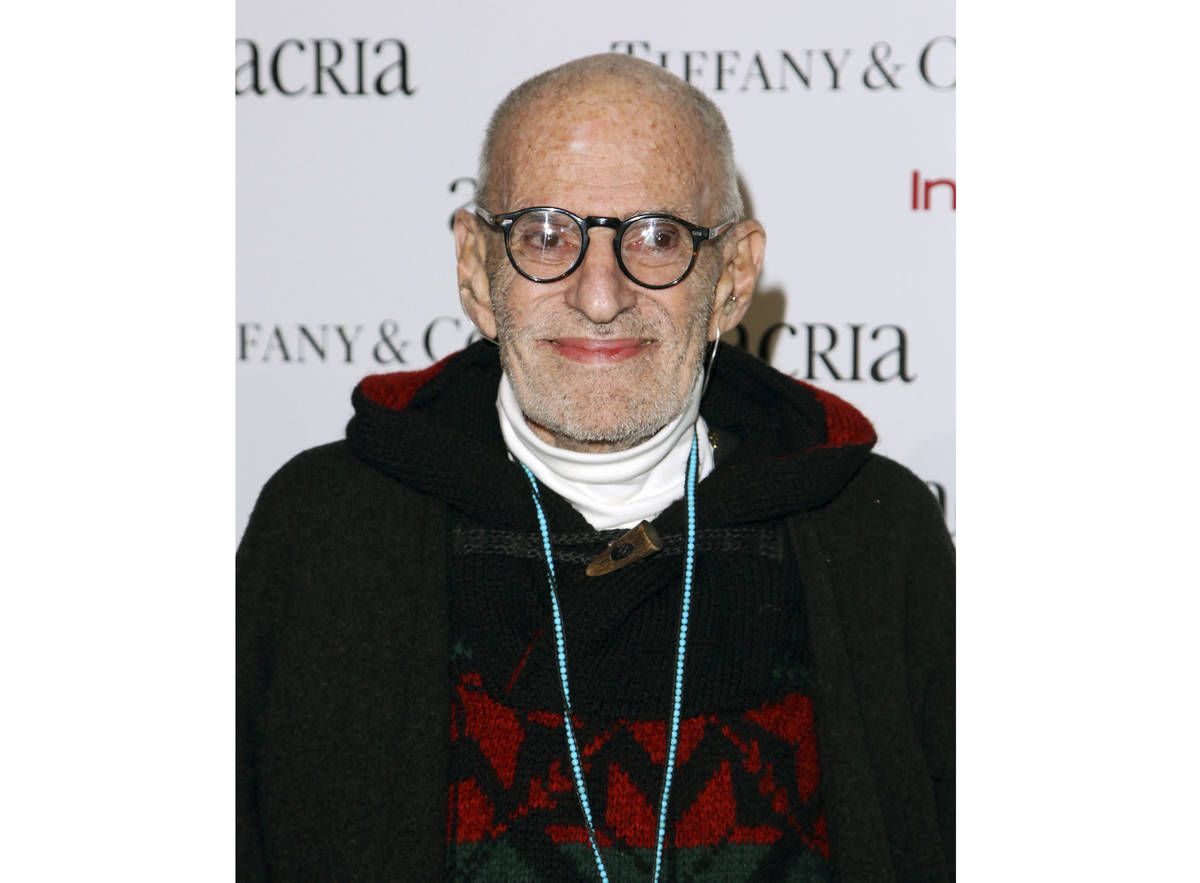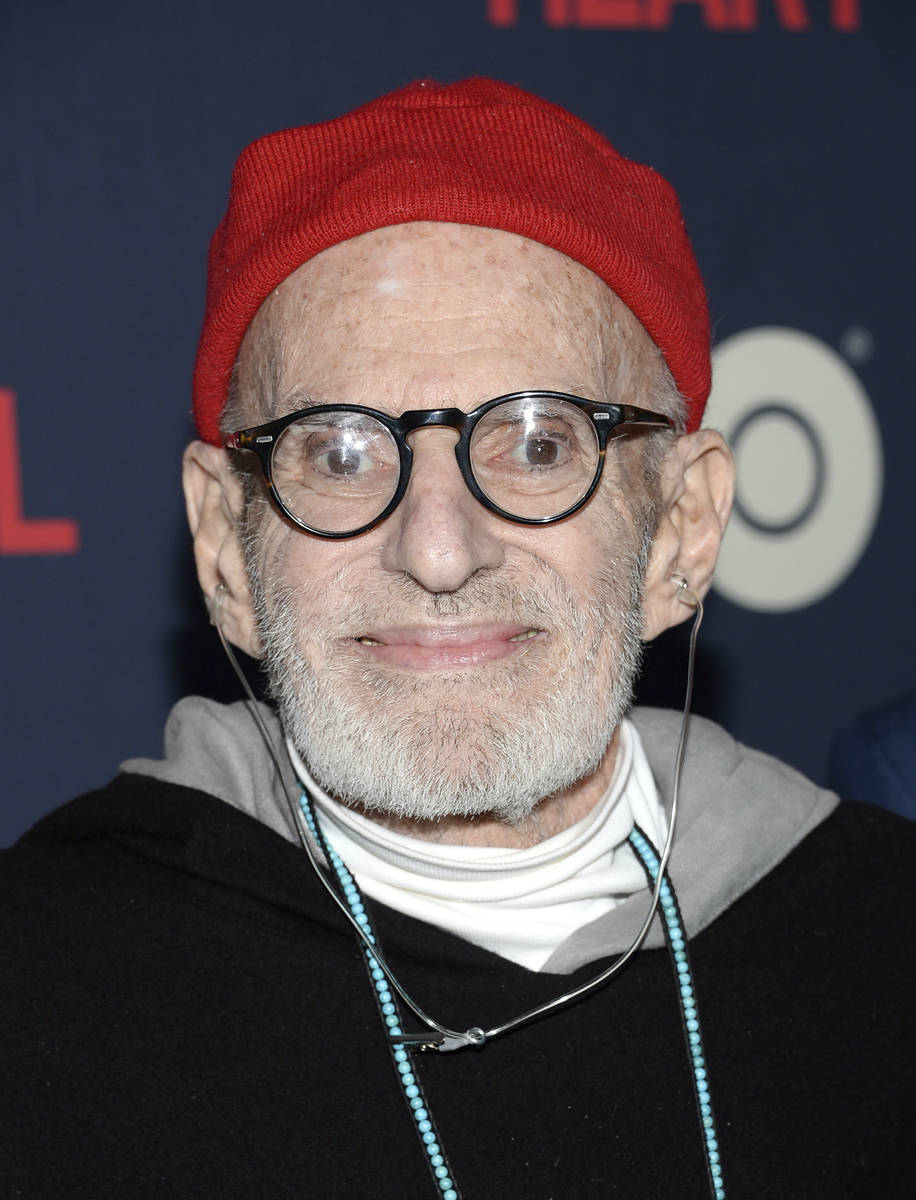Playwright and AIDS activist Larry Kramer dies at 84
NEW YORK — Larry Kramer, the playwright whose angry voice and pen raised theatergoers’ consciousness about AIDS and roused thousands to militant protests in the early years of the epidemic, has died at 84.
Bill Goldstein, a writer who was working on a biography of Kramer, confirmed the news to The Associated Press. Kramer’s husband, David Webster, told The New York Times that Kramer died Wednesday of pneumonia.
“We have lost a giant of a man who stood up for gay rights like a warrior. His anger was needed at a time when gay men’s deaths to AIDS were being ignored by the American government,” said Elton John in a statement.
Larry Kramer’s work to end the stigma around living with HIV and call for action will continue onward. Rest in power. https://t.co/rdI4WZE9b4
— ACLU (@ACLU) May 27, 2020
Kramer, who wrote “The Normal Heart” and founded the AIDS Coalition to Unleash Power, or ACT UP, lost his lover to acquired immune deficiency syndrome in 1984 and was himself infected with the virus. He also suffered from hepatitis B and received a liver transplant in 2001 because the virus had caused liver failure.
He was nominated for an Academy Award for his screenplay for “Women in Love,” the 1969 adaptation of D.H. Lawrence’s novel. It starred Glenda Jackson, who won her first Oscar for her performance.
He also wrote the 1972 screenplay “Lost Horizon,” a novel, “Faggots,” and the plays “Sissies’ Scrapbook,” “The Furniture of Home,” “Just Say No” and “The Destiny of Me,” which was a finalist for the Pulitzer Prize in 1993.
But for many years he was best known for his public fight to secure medical treatment, acceptance and civil rights for people with AIDS. He loudly told everyone that the gay community was grappling with a plague.
Tributes from the arts community flooded in Wednesday, with Lin-Manuel Miranda on Twitter saying “What an extraordinary writer, what a life.” Dan Savage wrote: “He ordered us to love ourselves and each other and to fight for our lives. He was a hero.”
Early advocate
In 1981, when AIDS had not yet acquired its name and only a few dozen people had been diagnosed with it, Kramer and a group of his friends in New York City founded Gay Men’s Health Crisis, one of the first groups in the country to address the epidemic.
He tried to rouse the gay community with speeches and articles such as “1,112 and Counting,” published in gay newspapers in 1983.
“Our continued existence as gay men upon the face of this earth is at stake,” he wrote. “Unless we fight for our lives, we shall die.”
The late journalist Randy Shilts, in his best selling account of the AIDS epidemic “And the Band Played On,” called that article “inarguably one of the most influential works of advocacy journalism of the decade” and credited it with “crystallizing the epidemic into a political movement for the gay community.”
Kramer lived to see gay marriage a reality — and married himself in 2013 — but never rested. “I’m married,” he told The AP. “But that’s only part of where we are. AIDS is still decimating us and we still don’t have protection under the law.”
Kramer split with GMHC in 1983 after other board members decided to concentrate on providing support services to people with AIDS. It remains one of the largest AIDS-service groups in the country.
After leaving GMHC, Kramer wrote “The Normal Heart,” in which a furious young writer — not unlike Kramer himself — battles politicians, society, the media and other gay leaders to bring attention to the crisis.
The play premiered at The Public Theater in April 1985. Associated Press drama critic Michael Kuchwara called it an “angry but compelling indictment of a society as well as a subculture for failing to respond adequately to the tragedy.”
A revival in 2011 was almost universally praised by critics and earned the best revival Tony. Two actors from it — Ellen Barkin and John Benjamin Hickey — also won Tonys. Joe Mantello played the main character of Ned Weeks, the alter ego of Kramer.
“I’m very moved that it moved so many people,” he said at the time. Kramer often stood outside the theater passing out fliers asking the world to take action against HIV/AIDS. “Please know that AIDS is a worldwide plague. Please know there is no cure,” it said.
The play was turned into a TV film for HBO in 2014 starring Mark Ruffalo, Jonathan Groff, Matt Bomer, Taylor Kitsch, Jim Parsons, Alfred Molina, Joe Mantello and Julia Roberts. It won the Emmy for best movie. Kramer stood onstage in heavy winter clothing as the statuette was presented to director Ryan Murphy.
The 1992 play “The Destiny of Me,” continues the story of Weeks from “The Normal Heart.” Weeks, in the hospital for an experimental AIDS treatment, reflects on the past, particularly his relationship with his family. His parents and brother appear to act out what happened in the past, as does the young Ned, who confronts his older self.
Launching ACT UP
In 1987, Kramer founded ACT UP, the group that became famous for staging civil disobedience at places like the Food and Drug Administration, the New York Stock Exchange and Burroughs-Wellcome Corp., the maker of the chief anti-AIDS drug, AZT.
ACT UP’s protests helped persuade the FDA to speed the approval of new drugs and Burroughs-Wellcome to lower its price for AZT. He also battled — and later reconciled — with Dr. Anthony Fauci, the longtime director of the National Institute of Allergy and Infectious Diseases, who has been leading the national response to the coronavirus pandemic.
Kramer soon relinquished a leadership role in ACT UP, and as support for AIDS research increased, he found some common ground with health officials whom ACT UP had bitterly criticized.
Kramer never softened the urgency of his demands. In 2011, he helped the American Foundation for Equal Rights mount their play “8” on Broadway about the legal battle over same-sex marriage in California.
“The one nice thing that I seem to have acquired, accidentally, is this reputation of everyone afraid of my voice,” he told The AP in 2015. “So I get heard, whether it changes anything or not.”
One of his last projects was the massive two-volume “The American People,” which chronicled the history of gay people in America and took decades to write.
“I just think it’s so important that we know our history — the history of how badly we’re treated and how hard we have to fight to get what we deserve, which is equality,” he told The AP.
At the time of his death, Kramer was working on a play called “An Army of Lovers,” which he was updating to include the pandemic.
At the 2013 Tonys, he was honored with the Isabelle Stevenson Award, given to a member of the theater community for philanthropic or civic efforts.
A few months later, Kramer married his longtime partner, architect David Webster, in the intensive care unit of NYU Langone Medical Center, where Kramer was recovering from surgery for a bowel obstruction.
Associated Press reporters Hillel Italie and David Crary contributed to this report.
























